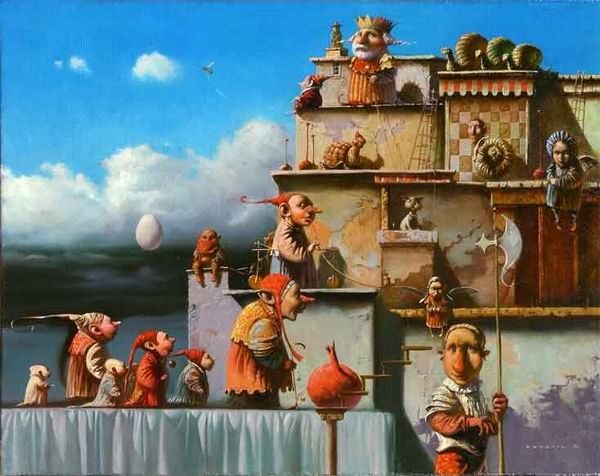
Promise of Chess Mini-Games in Critical Early Period of Learning
After seeing, in the recent post by @Vrooming_Rook, how damaging the practice of the neophyte playing a full game right after showing them the moves is, let's talk chess mini-games that promise making the critical early period of learning more effective and enjoyable while accelerating a genuine progress in chess.
Mini-games are an excellent tool for going ahead in teaching a newcomer, aligning with my broader non-conformist philosophy on early chess education refusing the traditional dogma of how to (actually defectively) get started teaching and learning chess.
Here's a detailed look at the merits and prospects of playing chess mini-games early:
1. Introduction to Chess Concepts:
I advocate for mini-games because they allow beginners to focus on specific chess concepts without the complexity of a full game. They can learn about individual piece movements, basic piece relationships, while developing the elementary tactics and embryonic strategy.
2. Building Intuition and Understanding:
Mini-games also help in growing intuition about how pieces work together. By playing games with limited pieces or under special rules, beginners can grasp the essence of piece relationships. I cannot emphasize enough how piece interactions are critical in strengthening the core visual-spatial intelligence necessary to ably play chess.
3. Simplifying the Learning Process:
Traditional methods overwhelm beginners with all the chess rules and possibilities at once. Mini-games simplify the game, making learning less intimidating and more engaging for new players.
4. Engagement and Motivation:
I believe that mini-games can make chess fun and less like a chore, thereby motivating beginners to continue learning. The immediate feedback from these games, where success is more achievable, can foster a love for chess.
5. Examples of Mini-Games:
I'm suggesting games like:
Pawn Games: Only pawns on the board to teach pawn structure and promotion. For example,
 .
.
2 Bishops vs 2 Rooks (RoaringPawn's Lesson One favorite teaching 3 out of 4 elementary piece relationships!)
 .
.
Rook vs Pawns (R to capture all Ps. If a P stays alive after promotion, Black wins)

.
Queen vs Pawns (W to play. Black wins)
 .
.
Knights race (who's gonna reach the other N's corner first?)

etc.
6. Gradual Complexity:
Mini-games introduce complexity gradually. Starting with few pieces (as Smyslov's father famously was creating specific scenarios and puzzles for the young Vasily to play with) and slowly adding more or changing scenarios can scaffold learning, building from basic to more complex and structured piece interactions.
7. Immediate Application of Concepts:
These games provide immediate contexts where beginners can apply what they've learned, making the connection between theory and practice clearer.
8. Feedback Loop:
Mini-games offer a quick feedback loop. Mistakes are less punishing in these scenarios, allowing learners to experiment, learn from errors, and try again without the pressure of a full game.
9. Customization for Learning Needs:
It should be appreciated how mini-games can be tailored to address specific learning gaps or to focus on particular skills, like checkmate patterns or defensive play.
10. Transition to Full Chess:
Mini-games are just stepping stones that prepare the beginner for the full game. Once players understand basic concepts through these simplified versions, transitioning to regular chess is more intuitive and less overwhelming.
11. Critiques of Overuse:
However, there's also caution against relying solely on mini-games for too long. It should be advocated for a balance, ensuring that learners eventually move towards understanding and playing the full game to grasp its depth.
To wrap it up, chess mini-games can be seen as a vital part of early chess education, aligning with my belief in teaching through understanding relationships and strategic concepts rather than just pushing the wood as is very commonly the case. They serve as an engaging, educational bridge to starting mastering the complexities of chess.
Your thoughts?
.
Yours truly,


